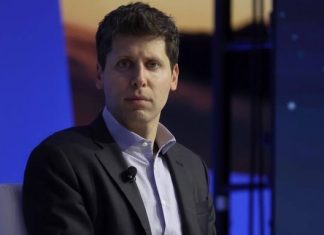In a seismic development for the cryptocurrency world, Changpeng Zhao, the billionaire founder and CEO of Binance, and the exchange itself, have pleaded guilty to federal charges. This marks a watershed moment aimed at bringing order to the often-lawless crypto industry.
As part of a coordinated settlement, Binance has agreed to pay over $4 billion in fines and penalties. Zhao, a key figure in the crypto space with a fortune exceeding $23 billion, will step down as CEO and pay $200 million in fines.
Binance, the world’s largest crypto exchange, admitted to engaging in anti-money laundering, unlicensed money transmitting, and sanctions violations. A years-long investigation alleges that Binance facilitated illicit activities, including child sex abuse, narcotics, and terrorist financing for groups like ISIS, Al Qaeda, and Hamas’s Al-Qassam Brigades.
This marks the largest-ever corporate resolution involving criminal charges for an executive. The guilty plea, combined with the recent conviction of FTX co-founder Sam Bankman-Fried, sends a strong message to bad actors in the crypto industry, according to US authorities.
The settlement includes a staggering $4 billion in fines and penalties, with Zhao’s personal fines totaling $200 million. Despite facing a maximum of 10 years in prison, federal guidelines suggest a likely sentence far below this figure. Zhao will also pay $150 million in civil penalties, as per the Commodity Futures Trading Commission.
“Binance turned a blind eye to its legal obligations in the pursuit of profits,” stated Treasury Secretary Janet Yellen. The guilty plea is part of a coordinated settlement involving various government agencies, including the Justice Department, FinCEN, OFAC, and the CFTC, making it Treasury’s largest enforcement action in history.
Federal prosecutors unveiled court records accusing Binance of processing transactions for customers engaged in illicit activities, including laundering proceeds from darknet market transactions, hacks, ransomware, and scams. The charges span from August 2017 to at least October 2022, alleging deliberate violations of anti-money laundering laws and economic sanctions.
Attorney General Merrick Garland emphasized, “Binance became the world’s largest cryptocurrency exchange in part because of the crimes it committed – now it is paying one of the largest corporate penalties in US history.”
Zhao, in a post on social media platform X, acknowledged stepping down emotionally but stated it was the right decision. He admitted mistakes and emphasized the move’s benefit for the Binance community.
The guilty plea and massive fines underscore a shift in the regulatory approach towards the largely unregulated crypto industry. Proponents of digital currencies highlight the lawful nature of the majority of crypto transactions, but US officials emphasize their commitment to monitoring and cracking down on illicit activities involving cryptocurrencies.
The Binance case follows the collapse of FTX and the conviction of its founder Sam Bankman-Fried on fraud charges. Crypto continues to be attractive to ransomware gangs and money launderers, prompting the US Justice Department to take an aggressive stance.
Deputy Attorney General Lisa Monaco highlighted the government’s determination to use all available tools to combat financial crimes via crypto. The establishment of the National Cryptocurrency Enforcement Team within the Justice Department further demonstrates the seriousness of the efforts.
While some see the settlement as a significant step, others argue that more must be done to address the industry’s lawlessness. Dennis Kelleher, co-founder, president, and CEO of Better Markets, expressed concern that such settlements might not be enough to curb criminal activities in the crypto space.
Binance, founded in 2017 by Zhao, faced civil cases earlier this year from US market regulators, accusing the exchange of running an illegal platform for unregistered securities. The SEC sued Binance, alleging an “extensive web of deception, conflicts of interest, lack of disclosure, and calculated evasion of the law.” Binance had consistently argued that it wasn’t subject to US laws due to the lack of a physical headquarters in the country.
Despite the challenges, Binance asserted its commitment to user protection, acknowledging past mistakes while attributing its rapid global growth to misguided decisions. Richard Teng, the new CEO, emphasized the company’s efforts to invest in security and compliance.













































